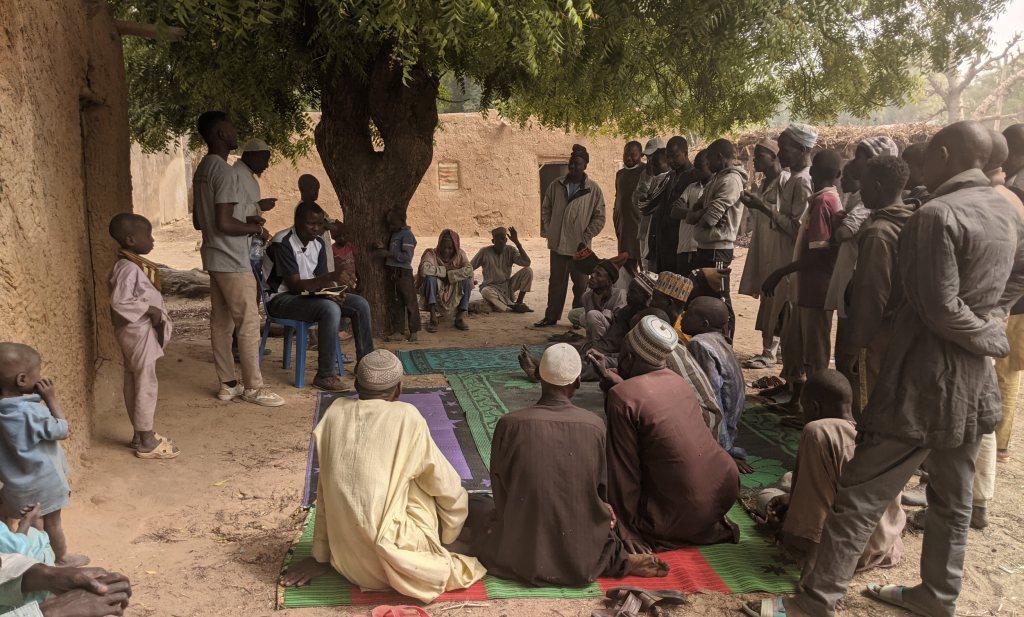In this week’s Letter to My Farmers, Babatunde highlights the importance of safety for African farmers in learning how to handle and protect themselves and their crops from improper pesticide handling.
Have you ever seen a smallholder farmer mixing and spraying synthetic pesticides before? Did you notice the "fancy" personal protective equipment (PPE) used to protect themselves from touching their skin and inhaling the synthetic pesticides? I know you would disagree with my last statement as many smallholder farmers don't have access to PPE, rather they depend on their "farming clothes", which don't provide the protection needed from the harmful effects of the chemical. This is the reality of many smallholder farmers.
Pesticide handling amongst smallholder farmers is very poor and many of them have never been trained to handle pesticides or what the colour code on these pesticides stand for and how it should be used to reduce adverse effects on them, beneficial pests and the environment, thus the increasing risks of harm.
It is sad that many farmers who use pesticides don't know what preharvest interval (PHI) stands for and how it affects the food they produce, therefore, farmers use pesticides of PHI for 30 days and harvest crops within 10 days, causing harm to the customers as the safety of the food has been compromised due to poor knowledge. More and more the consequences of poor pesticides handling have become a public health concern as there are increasing risks in food contamination during production, and the need to reduce its impact to ensure achieving zero hunger.
It is important that smallholder farmers are well trained (practical sessions) on effective pesticides handling by concerned organisations (being mandated by the Government), and the government monitoring the implementation of this exercise. More importantly, farmers have a good knowledge of the different colour codes, its importance, its risks, and risk reduction strategies that will ensure sustainable production of food. We should not leave the production of food in the hands of the smallholder farmers alone, thus, all other stakeholders should brace up and be consciously involved to provide support to the smallholder farmers to better handle pesticides to ensure the safety of our food and achieve food security. This is because if food is not safe, it can no longer be called food.
Yours-in-Service,
Babatunde
Pesticide handling amongst smallholder farmers is very poor and many of them have never been trained to handle pesticides or what the colour code on these pesticides stand for and how it should be used to reduce adverse effects on them, beneficial pests and the environment, thus the increasing risks of harm.
It is sad that many farmers who use pesticides don't know what preharvest interval (PHI) stands for and how it affects the food they produce, therefore, farmers use pesticides of PHI for 30 days and harvest crops within 10 days, causing harm to the customers as the safety of the food has been compromised due to poor knowledge. More and more the consequences of poor pesticides handling have become a public health concern as there are increasing risks in food contamination during production, and the need to reduce its impact to ensure achieving zero hunger.
It is important that smallholder farmers are well trained (practical sessions) on effective pesticides handling by concerned organisations (being mandated by the Government), and the government monitoring the implementation of this exercise. More importantly, farmers have a good knowledge of the different colour codes, its importance, its risks, and risk reduction strategies that will ensure sustainable production of food. We should not leave the production of food in the hands of the smallholder farmers alone, thus, all other stakeholders should brace up and be consciously involved to provide support to the smallholder farmers to better handle pesticides to ensure the safety of our food and achieve food security. This is because if food is not safe, it can no longer be called food.
Yours-in-Service,
Babatunde
Related



